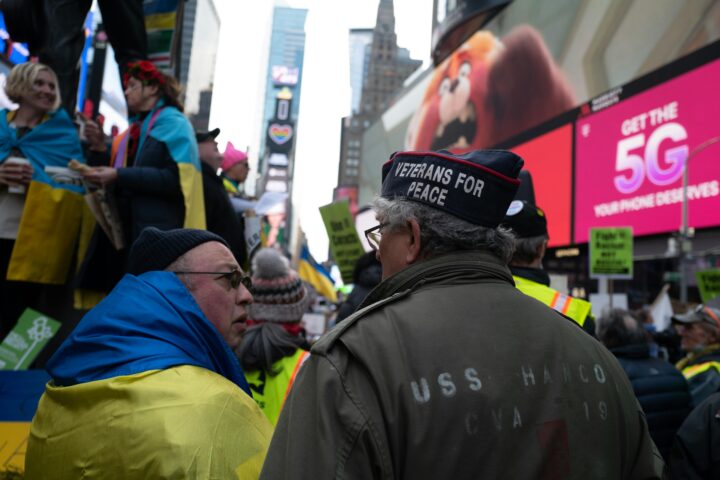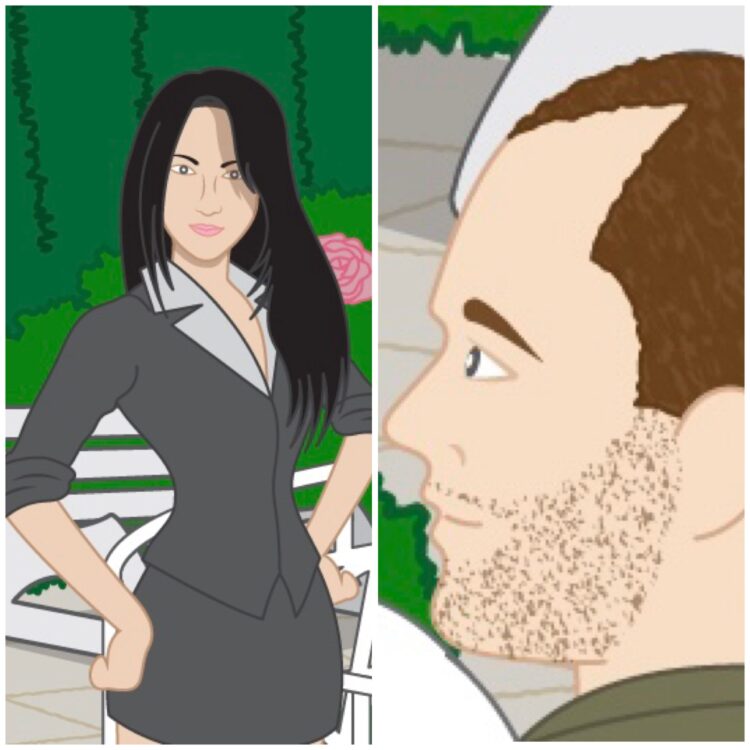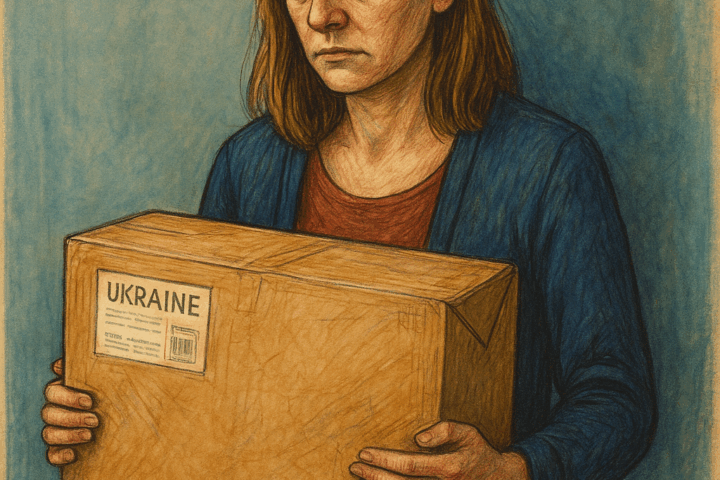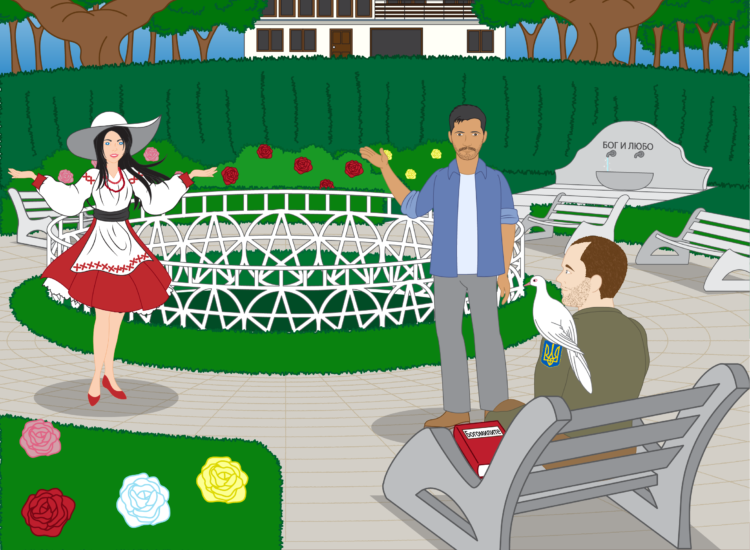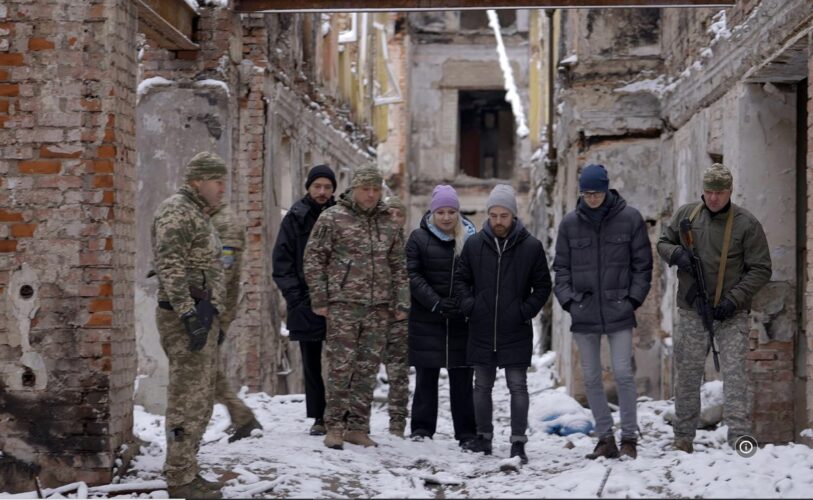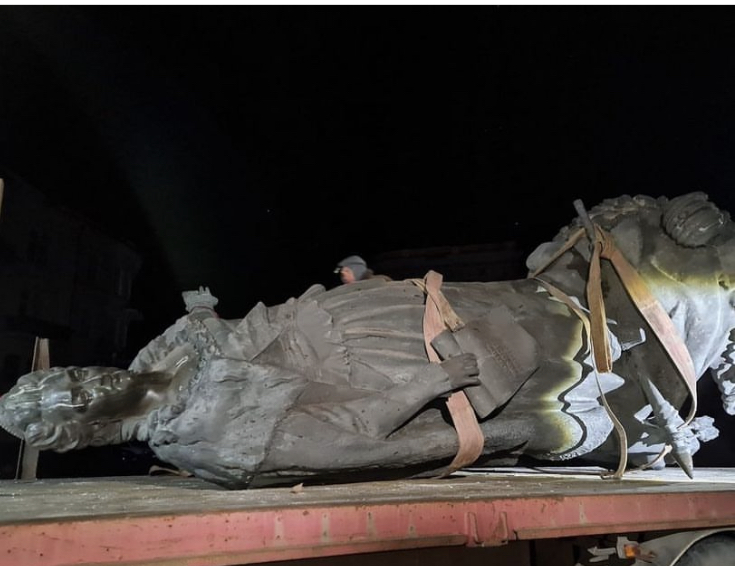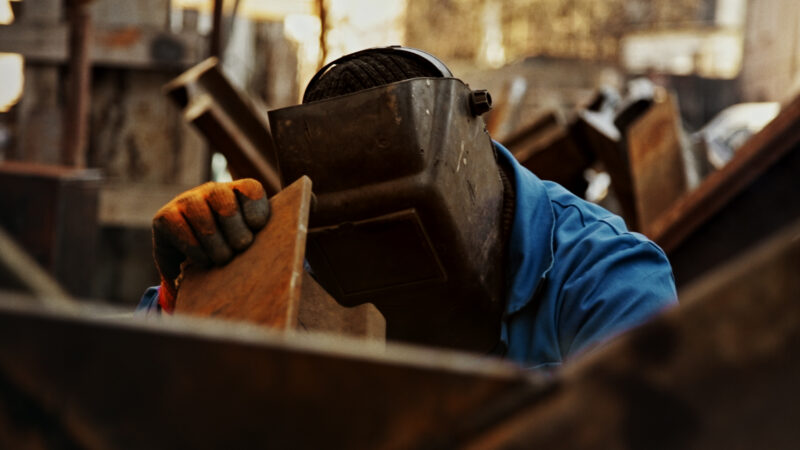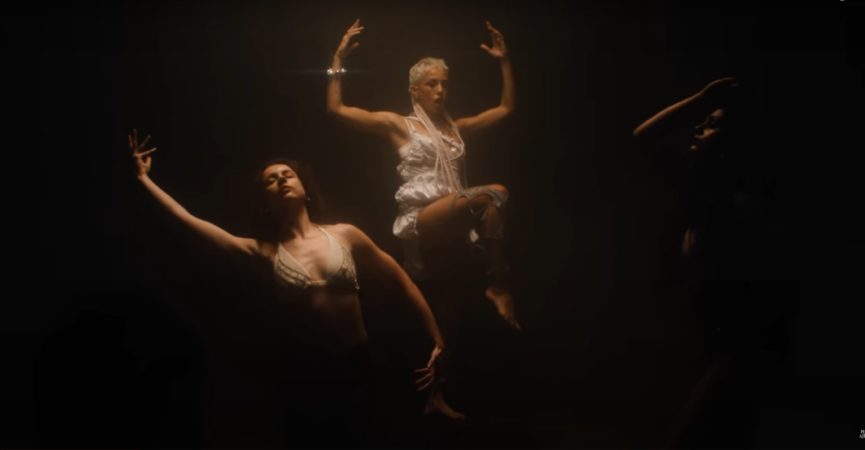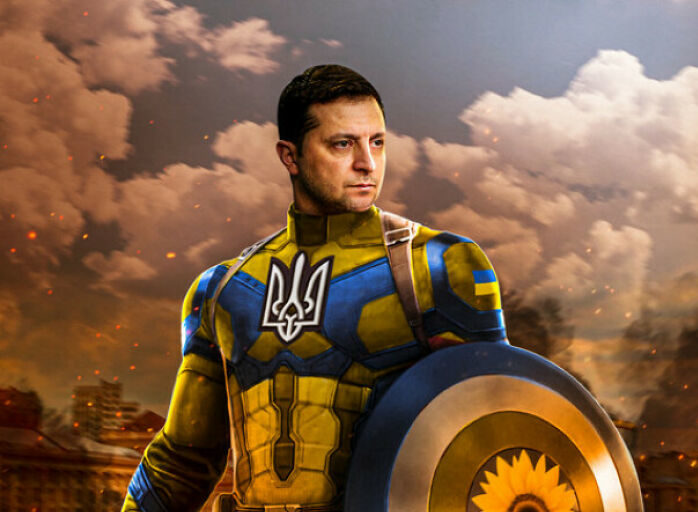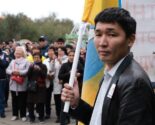MEDIA COVERAGE OF THE UKRAINIAN CRISIS IN BRITAIN & FRANCE
The British media are particularly interested in Vladimir Putin’s strategy, his politics and propaganda machine. One could say that there is paradoxically both admiration and revulsion for the Russian president.
As far as Ukraine is concerned, there is a key misunderstanding of the country in that it is presented as split with the political boundary based on the linguistic boundary. Odessa, for example, is perceived as a deeply divided city, whereas the polls showed right from the beginning of the conflict that separatism attracted only a tiny fraction of the population. This mistake derives from the influence of Vladimir Putin’s point of view associating Russian-speakers with Russians. Many experts (Andriy Protnov, Laas Leivat, Peter Dickinson, Timothy Garton Ash, Howard Arnos) have noted that the European media, in particular in Germany, Britain and France, have applied terminology used by Kremlin propaganda. Thus we speak of “separatists” or “pro-Russian rebels” as if it were a civil war when in fact we are rather dealing with a conflict orchestrated by Russia. On the other hand, the Western media do not reiterate terms used by the Ukrainian government, for example “terrorists” or “anti-terrorist operations”.
British and French journalists adopt neutral expressions such as “Ukrainian crisis” when dealing with the armed conflict in the Donbass, since officially there is no war between Russia and Ukraine, whether you are in Kyiv or in Moscow. The Independent newspaper regrets that Western leaders refuse to speak of an “invasion”, preferring the words “aggression” or “incursion”.
To sum up the English and French journalistic interpretation, we will take as a central theme the vision of the prestigious British magazine, The Economist, which summarizes quite accurately the western, liberal view on the Ukrainian crisis while remaining solicitous to inform readers about different interpretations that may go against their view or values.
BEGINNING OF THE CRISIS
The magazine was interested early on in the trade war which threatened both countries because of the project of association between Ukraine and the European Union. It mentions the Russian pressure on Ukraine to renounce this agreement. Although Russia has the ability to exert pressure, The Economist notes that Moscow has already lost the media battle, which partly explains why the project of association remains very popular with the Ukrainian population (24/08/2013).
The Economist is fairly impartial from the start. In an article of 23th November 2013 entitled “Playing East against West”, it points out that Ukraine, a country that has not yet acquired the solid culture of a nation state, is caught in a vice between two blocs, the European Union and Russia, both of whom expect Kyiv to adhere to its alliance while renouncing the other. The Economist notes that without Ukraine, Russia would no longer be an empire and its borders would retreat to those of the seventeenth century. It is very likely that an association agreement between the EU and Ukraine would be the red line for the Kremlin.
The Economist points out that Poland and Sweden play their part in the diplomatic credibility of this association agreement. A partnership with Eastern Europe and the Caucasus without Ukraine would signal a failure for the European Union. However, the problem for the EU is that Ukraine’s values are so out of tune with those of Europe. For this British magazine, Ukraine remains a corrupt country dominated by a parasitic elite in which the President cares little for the national interest with his only concerns being holding onto power and the enrichment of his clan.
The Economist takes a harsh line with its conclusion: no matter who wins the game, any agreement would be difficult to implement.
Seven days later, The Economist writes that Ukrainian President Yanukovych made a serious strategic mistake in maintaining the status quo (in refusing to sign the association agreement), but by so doing, he did Europe a great favour, saving the EU from having to collaborate with a dubious regime. Moreover, an association would most likely have served to raise the President’s popularity and have him re-elected in 2015.
The magazine estimates that Yanukovych’s time in power is running out. It is unlikely that he will be democratically re-elected because of the anger he has just triggered with the middle classes and above all with the young. For many Ukrainian entrepreneurs, the association treaty with the EU would have offered the best possible protection from the tax racketeering of the Yanukovych clan.
THE FEBRUARY REVOLUTION OF 2014
This revolution has no name because it is not yet over. The elite in place following the fall of the Yanukovych regime is hardly pleasing to the population. The cold reception reserved for opponent Yulia Tymochenko on Maidan Square reflects this feeling. The Maidan revolutionaries want an end to the oligarchic system that exploits the State rather than serving it. The protesters have no confidence in the Rada nor the leaders of the opposition. They want to make change happen. The Rada, for its part, makes the terrible mistake of removing the status of Russian as an official language (despite the Rada Parliament itself being dominated by the Party of Regions, a largely Russian-speaking party). This political gesture serves to fuel Putin’s propaganda and further contributes to the division of the country.
For The Economist, the only thing that unites the country is the recognition of Kyiv as the national capital. Kyiv is a national symbol with which both Ukrainian-speaking and Russian-speaking Ukrainians identify themselves. For the magazine, it is urgent that the new government in place builds bridges between the Russian-speaking regions of the East and South and the Western oblasts. The magazine reminds us that Western Ukraine experienced sovietisation as recently as 1939. It underlines the role of the mayor of Lviv, Andrey Sadovyi, who declared a “Russian Day” in the city where people are invited to express themselves only in the language of Pushkin.
The magazine concludes by predicting that the next challenge will come from Crimea because it is a safe bet that Putin, humiliated, will seek to destabilize Ukraine, as he has already done in Georgia with Abkhazia. It is possible that Putin is trying to annex the Crimean peninsula.
For the left-wing newspaper The Guardian, Westerners do not understand that President Yanukovych is no worse at corruption level than opposition leaders including the wealthy Yulia Tymoshenko. However, The Guardian, through the voice of Shaun Walker, is worried about Russian propaganda that associates the protesters with nefarious people in the pay of the West whose ultimate goal is to destabilize Russia. The contradiction is that the defenders of the Russian military bases in Crimea who denounce the fascists in Kyiv behave exactly like people of the far-right. As for The Financial Times, they regret that the Russian media do not report the true picture, for example omitting to mention how a large section of the Ukrainians enrolled in the Ukrainian army and in the National Guard are Russian speakers. The Financial Times deplores this confusion between Russians and Russian speakers, initiated by President Putin.

